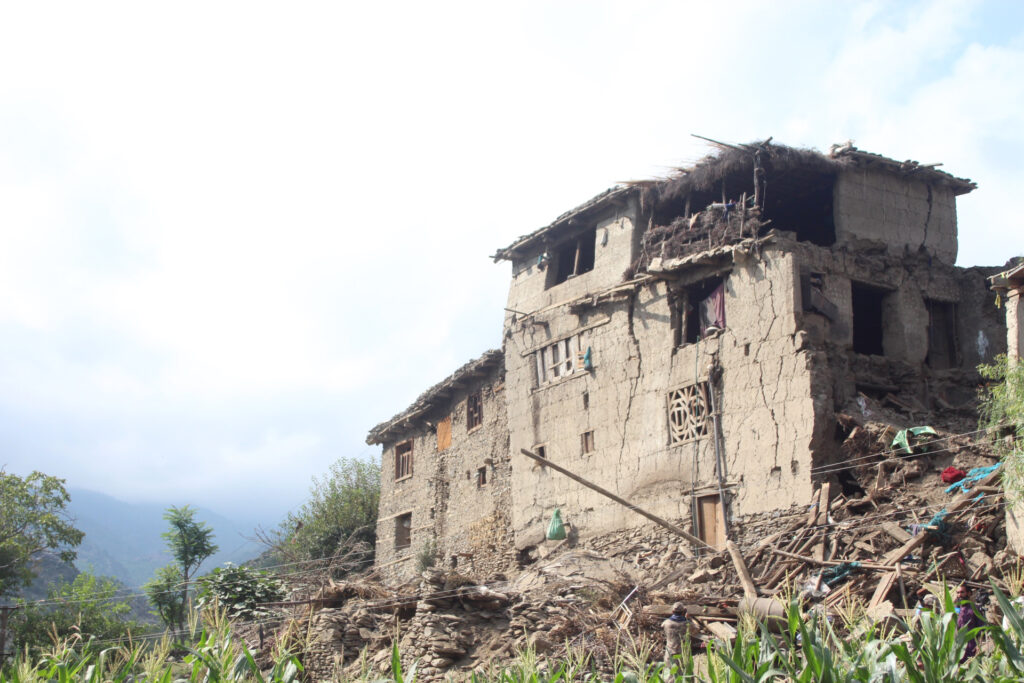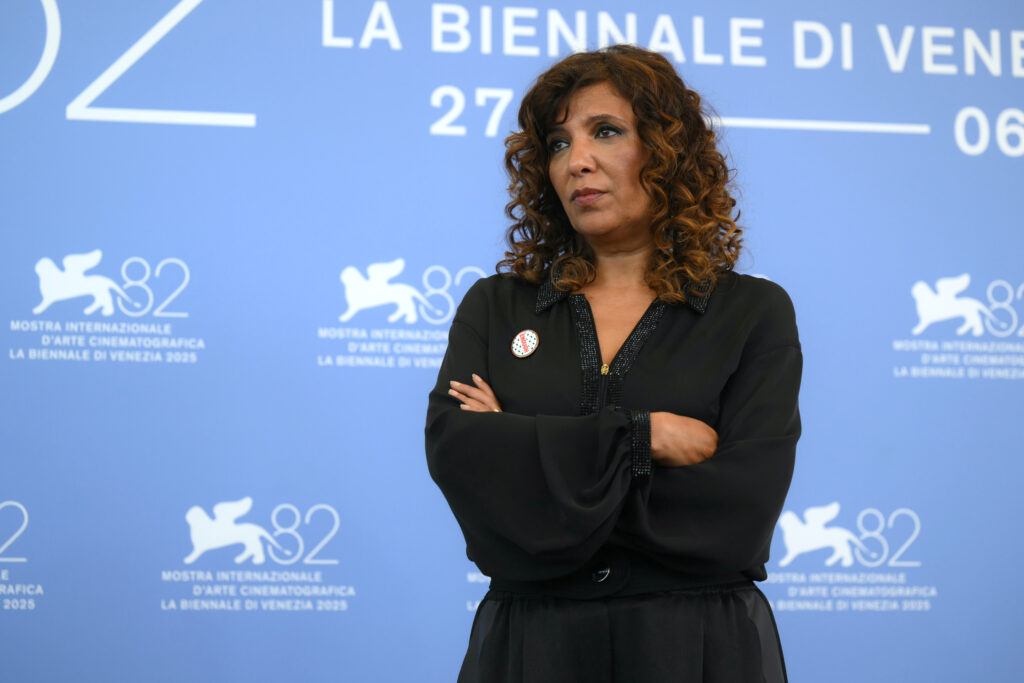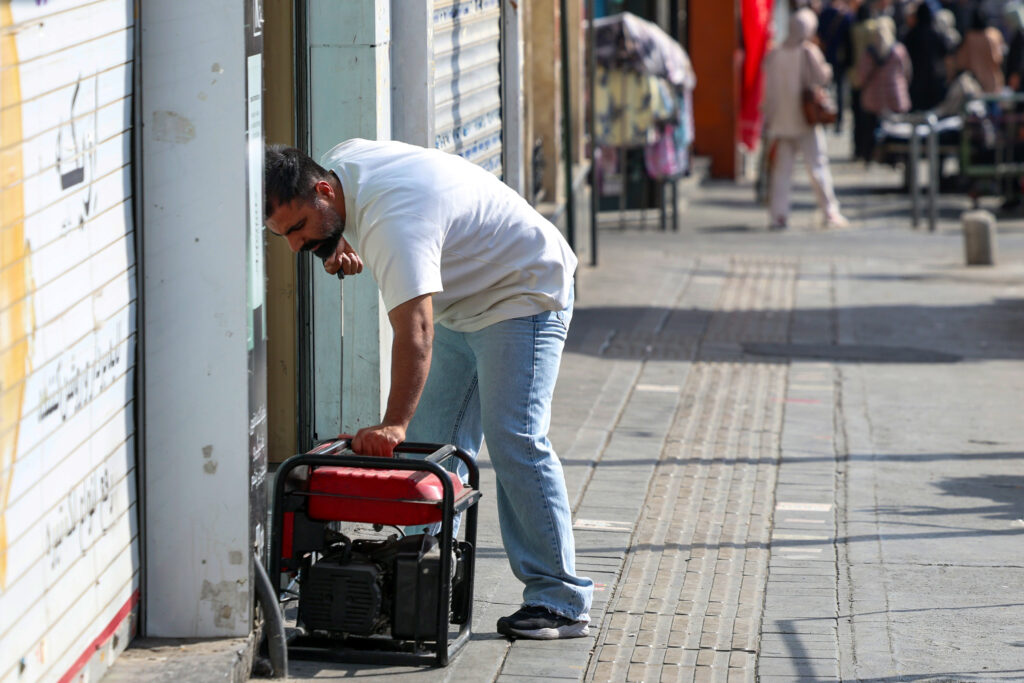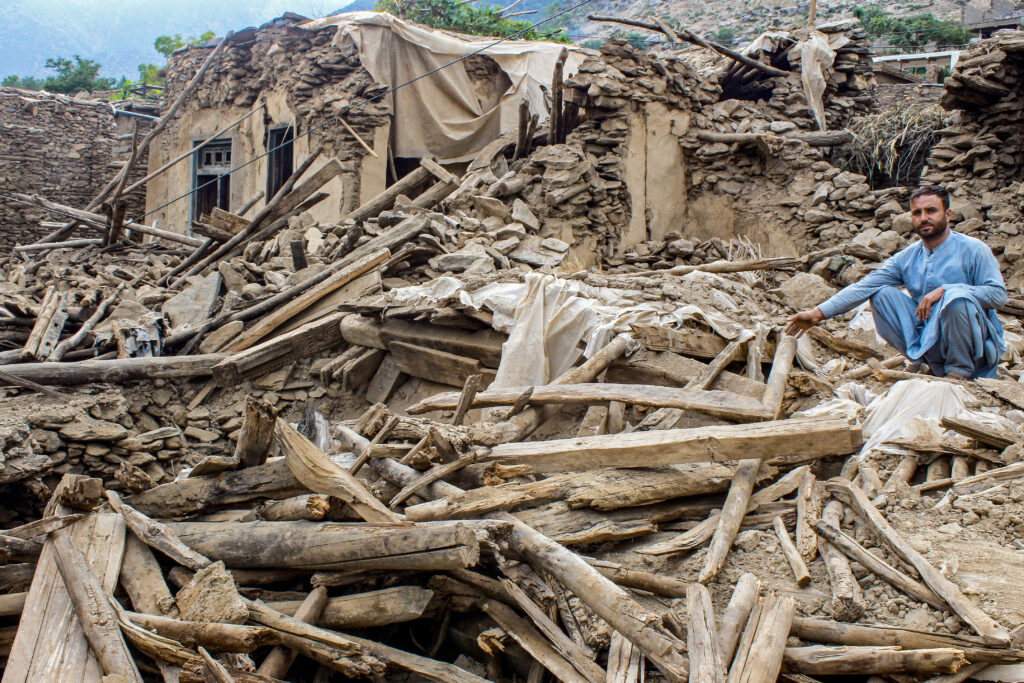Equipe de France: Akliouche, nouveau candidat en attaque
Nouvelle perle de l’impressionnant vivier français en attaque, Maghnès Akliouche espère apporter ses étincelles au système offensif développé par Didier Deschamps, qui l’a convoqué pour la première fois pour les matches de qualification au Mondial-2026.Le jeune Monégasque (23 ans) assure qu’il n’est “pas un croqueur de ballon” mais un joueur bien décidé à se couler dans le collectif.Célèbre sur les réseaux pour ses buts spectaculaires et ses grigris de dribbleur, Akliouche a mis beaucoup en avant le collectif pour sa première conférence de presse en A au centre d’entraînement de Clairefontaine, mercredi, où les Tricolores préparent leur rentrée contre l’Ukraine, vendredi à Wroclaw (Pologne), et l’Islande, le 9 septembre au Parc des Princes.”C’est ma première sélection. J’espère que je vais prendre du plaisir. Je vais d’abord m’intégrer au groupe et donner la meilleure version de moi-même”, prévient-il.”C’est un rêve d’être là”, savoure le vice-champion olympique 2024, qui a une chance à saisir pour la Coupe du monde aux Etats-Unis, Mexique et Canada (11 juin-19 juillet 2026) grâce au 4-2-3-1 de Deschamps qui laisse la place à quatre joueurs offensifs… et à leurs remplaçants.Ousmane Dembélé incertain pour l’Ukraine en raison d’une gêne à la cuisse gauche, Akliouche pourrait entrer en jeu pour ses premiers galops en A dès vendredi, pour bien lancer la campagne des Bleus, qui débutent contre leur plus redoutable adversaire dans le groupe D.- “Liberté” -“Sa marge de progression est de gagner en efficacité”, a expliqué Deschamps le jour de sa première convocation. Avec deux buts et une passe décisive avec l’ASM, Akliouche a parfaitement démarré cette saison à cette aune.Gaucher souvent aligné à droite par Adi Hütter en club, le gamin de Villemomble, en région parisienne, peut candidater en Bleu aux trois postes derrière l’avant-centre.”A Monaco, je joue sur le côté, mais j’ai de la liberté aussi de repiquer dans l’axe. Après, peu importe où le sélectionneur pourrait me mettre, je ferai de mon mieux”, ajoute-t-il.Dans sa progression vers le haut niveau, le nouvel appelé en Bleu vient aussi de vivre sur le Rocher un été “un petit peu mouvementé” en raison du mercato.Il pouvait partir, il est finalement resté et cela ne s’est décidé que dans les derniers jours du marché des transferts.”Pour moi, c’est un peu nouveau, raconte-t-il. Je sais que ça fait partie aussi de la vie d’un footballeur de vivre ce genre de moment. Et je me suis adapté. Je me concentre sur le terrain, et je me sens bien à Monaco.”- “City-stades” -Il précise qu’en Principauté, Paul Pogba lui a également “donné beaucoup de conseils avant d’arriver” à Clairefontaine.Quand “La Pioche” devenait champion du monde, en 2018, Akliouche débarquait à 16 ans au centre de formation de l’ASM.Auparavant il avait développé ses qualités “dans les city stades”, où il a “beaucoup joué”, avoue-t-il.”Ca m’a beaucoup appris. Je n’étais pas un croqueur de ballon, je savais déjà la donner au moment où il fallait la donner. C’est vrai que de jouer dans des petits espaces déjà quand tu es gamin, ça te fait progresser techniquement”, rembobine Akliouche. Aujourd’hui il se décrit comme un joueur qui “essaie de créer des décalages” et qui doit “être décisif, en marquant ou par la passe”.Il n’oublie pas d’insister sur le repli défensif, pas seulement en bon élève mais en joueur convaincu: “Ca doit faire partie maintenant du bagage d’un joueur de haut niveau”.”Je suis capable aussi de tenir ce rôle, une équipe de haut niveau doit aussi être capable de bien défendre à des moments. Et je prends vraiment du plaisir à récupérer. Surtout à récupérer le ballon haut”, ajoute Akliouche avec un sourire gourmand, comme s’il visionnait déjà une contre-attaque.
En Afghanistan, trois jours après le séisme, les rescapés attendent encore de l’aide
Au troisième jour de difficiles opérations, les secours peinent encore à parvenir jusqu’aux rescapés d’un des séismes les plus meurtriers en Afghanistan, démunis face à l’avenir après avoir tout perdu.Vers minuit dimanche, un tremblement de terre de magnitude 6 a tué 1.469 personnes, en a blessé plus de 3.500 autres et a fait entièrement s’écrouler près de 7.000 maisons dans les provinces orientales de Kounar, de Laghman et de Nangarhar, près du Pakistan, d’après un bilan actualisé par les autorités talibanes mercredi après-midi.”Notre village s’est écroulé, aucune maison n’est intacte”, a déclaré à l’AFP Omarkhan Omari, 56 ans, qui dit n’avoir jamais senti la terre trembler si fort dans son village de Dara-i-Nur, dans la province de Nangarhar.L’Afghanistan, à la jonction des plaques tectoniques eurasienne et indienne, est fréquemment frappé par des tremblements de terre, mais celui-ci arrive “au pire moment” assurent les ONG et l’ONU, forcées depuis des mois de réduire leur assistance aux Afghans en raison des coupes dans l’aide internationale. Dans le district de Nourgal, dans la province de Kounar, “certains villages n’ont toujours pas reçu d’aide”, rapporte à l’AFP Ijaz Ulhaq Yaad, un haut fonctionnaire local. Les glissements de terrain rendent très difficile l’accès aux hameaux de montagne et l’ONG Save The Children a rapporté qu’une de ses équipes avait marché 20 km pour “atteindre un village coupé du monde par des éboulements, transportant de l’équipement médical sur leurs dos”.- “Course contre la montre” -Sur place, les familles n’ont désormais plus rien pour survivre à flanc de montagne.Malik Chahwaiz, 55 ans, raconte que tout le monde vit dehors, loin des habitations de pierre et de terre battue.”Nous ne laissons pas nos enfants entrer dans les maisons, elles ont toutes tremblées, sont fissurées, il y a des toits qui s’écroulent”, dit-il à l’AFP.L’ONG ActionAid, se dit elle “engagée dans une course contre la montre”.”Les services publics sont déjà à bout” dans le pays, l’un des plus pauvres au monde, explique Srikanta Misra, son directeur national. Et le séisme a frappé des villages reculés “où les gens souffraient déjà de pénuries alimentaires, avec un habitant sur cinq souffrant de la faim”.Surtout, dans ces villages se trouvaient des familles tout juste revenues du Pakistan, en pleine campagne d’expulsion d’Afghans sur son sol. Et les appels de l’ONU et des ONG à cesser ces départs n’ont pas été entendus: des milliers d’Afghans, porteurs d’une carte de réfugiés de l’ONU, sont repartis depuis lundi, ont rapporté à l’AFP des responsables des deux côtés de la frontière.- Après-séisme? -Le ministère afghan de la Défense assure avoir organisé des dizaines de vols pour évacuer quelque 2.000 blessés et leurs proches vers des hôpitaux de la région.Depuis dimanche, les autorités talibanes n’ont pas fait état de plan pour l’après-séisme, que ce soit en termes d’aide financière aux sinistrés, de stratégie de relogement et, à plus long terme, de reconstruction. Elles se contentent d’affirmer qu’elles ne pourront pas faire face seules.Hamdullah Fitrat, porte-parole adjoint du gouvernement, a indiqué que des camps avaient été établis près de l’épicentre pour notamment stocker les fournitures d’urgence et gérer le transfert des blessés.L’ONU a déjà débloqué cinq millions de dollars de son fonds mondial d’intervention d’urgence.Mais l’Organisation mondiale de la santé (OMS) a déjà dit manquer de trois millions de dollars pour mettre en œuvre sa réponse d’urgence.L’agence onusienne a par ailleurs souligné dans un communiqué le risque d’apparition d’épidémies, “au sein de populations déplacées déjà vulnérables”.Après leur retour au pouvoir en 2021, les talibans avaient déjà été confrontés au séisme le plus meurtrier en 25 ans: en 2023, dans la région d’Hérat (ouest), à l’autre extrémité de l’Afghanistan, plus de 1.500 personnes avaient été tuées et plus de 63.000 habitations détruites.Depuis 1900, le nord-est de ce pays a connu 12 séismes d’une magnitude supérieure à 7, selon Brian Baptie, sismologue au British Geological Survey.
Director tells Venice that Gaza film gives ‘voice’ to victims
The director of a new film about a five-year-old girl killed by Israeli forces in Gaza told the Venice Film Festival Wednesday she wanted to give “a voice and a face” to victims.”We’ve seen that the narrative all around the world is that those dying in Gaza are collateral damage, in the media, and I think this is so dehumanising,” Franco-Tunisian director Kaouther Ben Hania told journalists ahead of the world premiere of “The Voice of Hind Rajab”.”And that’s why cinema, art, and every kind of expression is very important to give those people a voice and a face.”Gaza has been front and centre at the prestigious event in Venice after a group of filmmakers and others called on festival organisers to more forcefully condemn the war.Ben Hania’s film is one of 21 in the running for the Golden Lion prize.It tells the true story of the girl who pleaded with emergency services to come and rescue her after Israeli forces killed the rest of her family in their car while evacuating from Gaza in January 2024.The movie uses the actual audio from phone calls Hind made with the Red Crescent.”This movie was very important for me because when I heard the first time the voice of Hind Rajab, there was something more than her voice,” said Ben Hania.”It was the very voice of Gaza asking for help and nobody could enter,” she added.”It was like a kind of strong desire and the feeling of anger and helplessness that gave birth to this movie.”Ben Hania was the first filmaker to represent Tunisia at the Academy Awards in 2021. adp/ams/jj
Iran’s small businesses hit by rolling blackouts
Pizzeria owner Saeed is unable to take or serve orders at his restaurant in the Iranian capital, his business stalled by rolling power outages that have compounded the country’s many economic woes.”Outages often hit right in the middle of lunch service, the worst time for restaurant owners,” the 48-year-old entrepreneur told AFP from his pizzeria in an upscale neighbourhood of northern Tehran, requesting to be identified only by his first name.Prolonged power cuts, which also disrupt water and internet access, have become routine, with officials blaming fuel shortages, drought, decrepit infrastructure and soaring demand in the sweltering heat.The burden on small businesses, already struggling to make ends meet, is likely to worsen with European powers moving to reimpose sanctions if an agreement is not reached on Iran’s nuclear programme in the coming weeks.The Iranian currency is already in free fall, exacerbating chronic hyperinflation.Tehran has seen one of its hottest summers on record this year, with temperatures around 40C prompting the government to repeatedly shut banks and public offices to conserve energy and water.Last Friday, state television reported electricity consumption reached 73,500 megawatts, approaching the all-time record of 79,000 megawatts recorded in 2024.Without sufficient fuel to operate the power plants, authorities are forced to ration electricity to prevent overloading the ageing grid, instituting daily two-hour cuts across the country.No electricity means no internet, and so no online orders for Saeed — a significant portion of his business.”Orders have fallen drastically,” said Saeed, who regularly misses online requests placed during outages.To stay afloat, he says he has been forced to lay off staff and cut back further on electricity use.- ‘Unavoidable’ -Last month, Iran’s President Masoud Pezeshkian acknowledged the strains the energy crisis was causing, pledging reforms to attract investment.He however conceded that, for now, “cutting off electricity was unavoidable.”Across Tehran, butchers, bakers, pastry shops, and even ice cream vendors suffer heavy losses in the meantime.In the city centre, a pastry chef showed AFP rows of refrigerators, empty or at most half-filled after a power outage stalled his process.”Dry pastries can survive in the fridge for maybe two hours,” he told AFP. “But the soft ones, especially chocolate ones, collapse.” “They go mushy, and nobody buys them,” the grey-haired patissier complained, saying the worst part of the outages is their unpredictability.Authorities publish outage schedules by area, but the cuts often still occur at erratic times.”Sometimes it happens two hours before schedule, right when we’re in the middle of production,” he said, at which point he can only watch his creations go bad.- Wilted icing -Videos circulating widely on social media in recent weeks have shown bakery workers throwing out trays of spoiled goods, including dough and decorative cakes, colourful icing wilting in the heat.Butcher Hossein Hajabassi has been forced to do the same, his business quickly shrinking as meat prices soar and purchasing power plummets.”Chicken breasts and fillets, but also lamb liver, which are already very expensive, spoil very quickly,” said the butcher in his sixties.”I sometimes take the meat home to avoid wasting it.”
Homeless and fearful, Afghan quake survivors sleep in the open
Families huddled hungry and homeless days after a deadly earthquake hit eastern Afghanistan, not daring to set foot in the few remaining buildings for fear an aftershock could bring them down.The initial powerful 6.0-magnitude earthquake struck remote regions along the border with Pakistan, killing more than 1,400 people, with at least six strong aftershocks and countless smaller tremors.Some farming villages tucked among the green mountainsides were flattened, with people still under the rubble days later.Elsewhere, some houses were only partially destroyed, but residents preferred to brave the elements than risk being crushed.Still haunted by the “terrifying night” when the quake destroyed his house in the village of Dar-i-nur in Nangarhar province, Emran Mohammad Aref said he had since slept with four other family members outside on a rough plastic mat.”There was a tremor yesterday and there was also one this morning,” Aref told AFP. “Now we have no place to live and we are asking everyone for help.”While those with the means fled the village, residents who had no choice but to stay cobbled together makeshift shelters with whatever they could find among the destruction.Even in Jalalabad, Nangarhar’s provincial capital, which suffered no damage but felt the quake and its aftershocks, “we are very afraid”, said Fereshta, a 42-year-old doctor.”Every time I take a step, I feel like the ground is shaking. We don’t stay inside the house and we sleep in the garden, constantly thinking there will be another quake,” she said.- ‘Give us shelter’ -Similar scenes are playing out across the affected region, some in the isolated areas of hard-hit Kunar province that are still cut off from aid by landslides caused by the quake and aftershocks.But in fleeing their homes — often built on high ground — and taking refuge in low-lying fields, riverbeds or by roadsides, survivors risk being hit by rockfall if aftershocks strike, warned Ijaz Ulhaq Yaad, a senior official in Kunar’s Nurgal district.”The area is very dangerous, you cannot stay there long or even walk through it,” said Yaad.The United Nations said it has 14,000 tents ready for distribution.The International Federation of Red Cross and Red Crescent Societies (IFRC) told AFP it has at least 700 tents available, but cannot deliver them to survivors because of difficult access to the villages.”Help us, give us shelter, help my children, we have nothing left,” pleaded Sorat, a housewife injured in the quake along with her husband and children.After being pulled from the ruins of her house by rescuers, she was treated in a regional hospital, then sent back to her village, where nothing awaits her, she told AFP.While waiting for aid, “we are staying in the valley”, she said, sitting in her blue all-enveloping burqa on a traditional simple woven bed surrounded by her three small children.This earthquake, one of the deadliest in Afghanistan in decades, is “the last thing families with young children need in a country where many don’t have enough food, and a large portion of the children are already malnourished”, the World Food Programme said, adding the situation “is brutal”.Afghanistan, still fragile after decades of war and a prolonged humanitarian crisis, has been rocked by other severe, deadly quakes in recent years — one in 2023 in western Herat, on the other side of the country near Iran.That first 6.3-magnitude tremor was followed by at least eight powerful aftershocks and destroyed entire villages.





